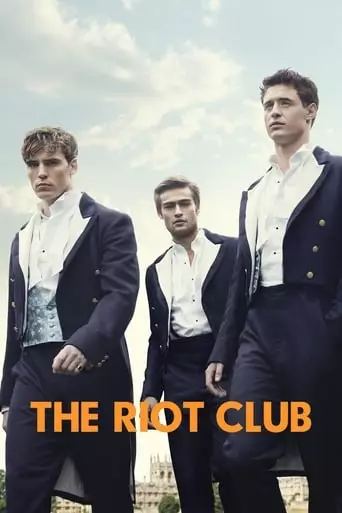
The Riot Club (2014) Watch Online Free
Two first-year students at Oxford University join a secret society and learn that their reputations can be made or destroyed over the course of one evening.
The Riot Club (2014), directed by Lone Scherfig, is a British drama that delves into the lives of two first-year students at Oxford University who become members of an exclusive and notorious dining club. The film is an adaptation of Laura Wade’s play Posh and offers a critical examination of privilege, entitlement, and the dark undercurrents of elite society.
The narrative follows Miles (Max Irons) and Alistair (Sam Claflin), both from privileged backgrounds, as they navigate their first year at Oxford. Miles is portrayed as more grounded and empathetic, while Alistair embodies arrogance and entitlement. Their paths converge when they are invited to join the Riot Club, an exclusive society known for its hedonistic and often destructive behavior.
The film’s setting in Oxford University serves as a microcosm for the broader societal structures, highlighting the stark contrasts between the elite and the working class. The Riot Club’s initiation rituals and subsequent actions expose the characters’ moral ambiguities and the corrupting influence of unchecked privilege.
The Riot Club explores several profound themes:
Upon its release, The Riot Club received mixed reviews from critics. While some praised the film for its compelling performances and critical perspective on class disparity, others felt it lacked depth in character development. The film holds a 56% approval rating on Rotten Tomatoes, indicating a divided reception.
Critics highlighted the film’s sharp critique of the British class system and its portrayal of the corrupting influence of privilege. However, some noted that the film’s focus on the negative aspects of its characters left little room for nuanced character development.
After watching The Riot Club, viewers are likely to experience a range of emotions, from discomfort to introspection. The film’s unflinching portrayal of the excesses and moral decay of the elite may evoke feelings of anger and frustration. The stark depiction of class disparity and the consequences of privilege can lead to a heightened awareness of societal inequalities.
The film’s intense and often unsettling scenes may leave viewers reflecting on the nature of power, entitlement, and the human capacity for cruelty. While the narrative focuses on the negative aspects of its characters, it also serves as a catalyst for discussions about social structures and personal responsibility.
In conclusion, The Riot Club is a provocative film that challenges viewers to confront uncomfortable truths about privilege and class. Its compelling performances and critical perspective make it a thought-provoking watch, leaving a lasting impression that encourages reflection on societal norms and individual actions.
